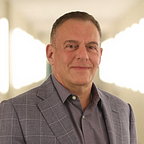Anti-vaxxers don’t need any more convincing. We need to mandate the COVID-19 vaccine — and ensure those with real concerns are supported.
The FDA’s approval of the Pfizer vaccine, a move long-awaited by health centers and large employers across the country, is already causing an uptick in vaccinations after a few months of tapering off and a surge of COVID-19 infections and death — overwhelmingly of the unvaccinated.
As we enter a new phase of vaccinations, we need to stop focusing the conversation on how to convince anti-vaxxers to get the vaccine — and instead give those who blatantly refuse to get vaccinated hard requirements to do so. Meanwhile, we should focus our time, attention, and resources on those who have valid concerns about receiving the vaccine — and do everything we can to meet them where they are.
Anti-vaxx Trump supporters aren’t vaccine “hesitant.” They’re vaccine adverse — sometimes violently so — having chosen to believe the lies of their idol and brazenly traipse the globe without protection for themselves or the people around them. Each time a city or state prematurely loosens COVID-19 restrictions, they feel emboldened in their agenda. It is beyond time for there to be vaccine mandates to access private enterprises like airplanes, trains, restaurants, malls, and concerts, as well as to attend school and go to work.
At the community clinics I run in South and Central Los Angeles, our patients face obstacles which are vastly different than what you might see portrayed in mainstream media around why people aren’t getting vaccinated.
We’re seeing hesitancy from folks who worry there wasn’t enough time to produce a safe vaccine. Some of our Black patients are distrustful of the healthcare system, given the history of discrimination, harm, and indifference they’ve experienced at the hands of the medical community. We’ve been talking to people who worry the vaccine will make their underlying health conditions worse. Many of our patients have struggled to get time off work and familial duties to receive the vaccine in the first place, and worry the side effects will put them out of work for days or even weeks, losing critical income or even their jobs without financial and legal protection from the federal government.
There are people with language barriers, mobility and transportation issues, and those who worry their immigration status somehow disqualifies them from receiving the vaccine for free, or that having medical data out there would increase the likelihood ICE will find and deport them.
These fears don’t come from nowhere. At the beginning of the vaccine rollout, two undocumented women were denied the COVID-19 vaccine at Rite Aids in Southern California due to their lack of social security cards.
There has been no comprehensive paid leave passed for people who earn an hourly wage, and need time off work to both get vaccinated and recover from any side effects they may experience. With 54 percent of total people in the U.S. and 72 percent of those who make less than $50,000 per year living paycheck-to-paycheck, it should come as no shock that some people are more willing to just wear a mask at work and take the risk than choose to receive a shot that may force them to call out sick for a few days and potentially lose hundreds of dollars, their jobs, or even their homes as a result.
One of our patients was afraid to get vaccinated because she has numerous chronic conditions. Last week, we stationed a doctor in the lobby who shared information about how important the vaccine was for people with diabetes and high blood pressure. After speaking with the doctor, she decided to get vaccinated.
A high school student, who lost her mother and brother to COVID-19, came into one of our school based clinics to get the vaccine. Her father was afraid to get the vaccine, because he can’t afford to take off work and has no sick time and was concerned about the side effects. His only day off was Monday. We scheduled him for one of our mobile pop-up vaccination events last Sunday at a Catholic Church in Compton, and he came in to get the shot.
Sometimes, it’s less about people being resistant to receiving the vaccine and more about them not knowing how to get it. With this knowledge, our clinics have partnered with community groups to reach folks who don’t speak English or Spanish. Just last week, we were able to vaccinate dozens of people who only speak Quiché, a Mayan language. This would not have been possible without strategic partnerships and deep, on-the-ground work to find people who are isolated from information the rest of us have so readily available.
While the patients we serve are a specific subset of the population, mostly undocumented folks and nearly all low income people of color, there are undoubtedly countless folks in pockets and spread out across the country who have similar fears and concerns. The conversations to assure them it’s safe, give them accurate information, and answer questions take time, empathy, and cultural competency. These conversations are critical and lifesaving. We need to prioritize them above all else.
We’re at a phase in the pandemic now where boosters will soon be recommended and available, since the effectiveness of the initial vaccinations is already beginning to wear off.
Now more than ever, it’s important to continue building infrastructure to reach people who are still having a difficult time accessing the first round of vaccinations for a myriad of real reasons. We need to continue building trust and relationships with communities who are hesitant to receive the vaccine, and ensure they have the information they need to feel good about getting the shot.
Ultimately, we need to reject the continued politicization around prevention of the virus, and put all our resources into finding and assuring those who have been left out of the conversation that the vaccine is safe, free, and necessary.
